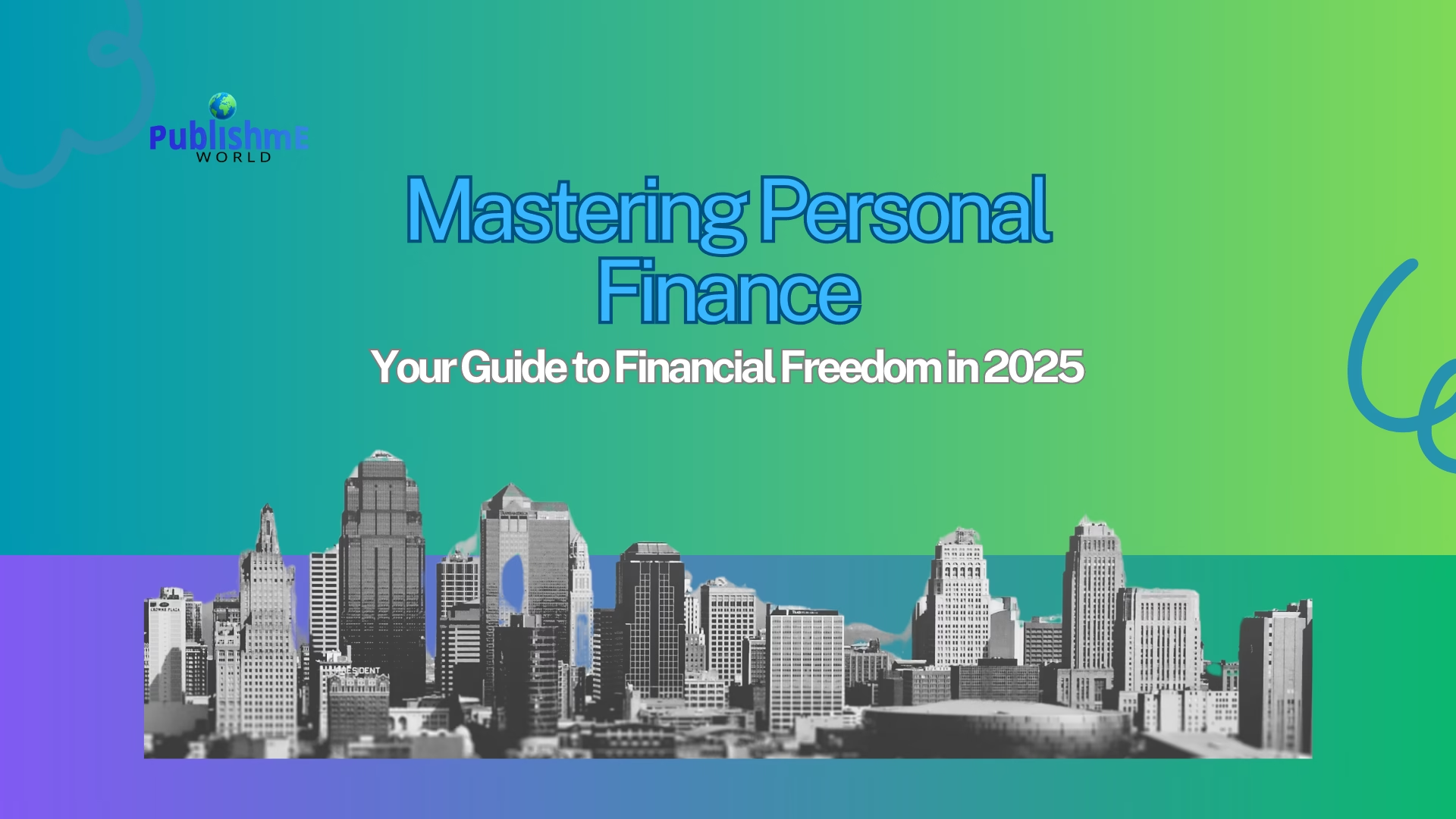Contents
Why Personal Finance Matters More Than Ever
In 2025, personal finance is no longer just about budgeting and saving—it’s about building financial resilience, growing your wealth with smart investments, and leveraging technology for better decision-making. Whether you’re a student, professional, or entrepreneur, mastering your finances can give you freedom, security, and peace of mind.
The management of your money is wisely important, with increasing inflation, uncertain job markets and increasing expenses. Personal finance strengthens you:
- Emergency
- Avoid unnecessary debt
- A house, educational or pension scheme for future milestones
- Get financial freedom
Inflation, income interval and financial uncertainty
Many people struggle with inflation and increase costs. Personal finance is your security trap. With the right plan, you can navigate through uncertain financial time with confidence.
Create a budget that works in 2025
It’s not about limiting your budget – it’s about giving your money a goal. A good budget emphasizes your income, fixed costs, discretionary expenses and savings goals.
Equipment and app for the budget
Today’s financial apps, such as YNAB, Mint, and Goodbudget, allow you to track expenses, target and achieve real -time insight into your financial health.
One of the most efficient and simple budget Finance methods is the 50/30/20 rule. This structure divides your income into three main categories:
- 50%for need: Rent, grocery products, tools, insurance, transport
- 30%for the desire: Eat, entertainment, hobby, travel
- 20%for savings and repayment of loans: emergency funds, pension savings, repayment of loans
By organizing your economy in this way, you can ensure that your essential expenses have been covered, enjoy life without crime and still make room for long goals.
How much should you save?
Experts recommend saving the expenses to stay for 3-6 months. Start small – £ 500 or £ 1000 per month – grow over time.
Automatize your savings
Use automatic transfer to your savings account. You don’t even miss money and do it quickly.
- Investment strategies for making money
- The money sitting in the savings account loses the price due to inflation. This is why investment is important.
Where should I invest in 2025?
step 2 Securities Fund: Miscellaneous and Low Risk
- Index Fund/ETF: Great for long -term development
- Stock: high risk but high return capacity
- Fixed deposit/bond: Safe option for Orthodox Investors
Diversification is the key
Don’t put all your eggs in a basket. Spread your investments in different asset classes to reduce the risk.
Step 3: Build an Emergency Fund
Life is unpredictable. An emergency fund acts as a financial cushion against unexpected expenses like medical emergencies, job loss, or urgent home repairs. Financial advisors typically recommend saving at least three to six months’ worth of living expenses in an accessible savings account.
Having this safety net reduces the need to rely on credit cards or loans during crises and ensures that your long-term plans stay on track.
Step 4: Manage Debt Wisely
Debt can derail your financial health if not managed properly. Prioritize paying off high-interest debts such as credit card balances. Consider using strategies like the Debt Avalanche Method (paying off the highest interest debt first) or the Debt Snowball Method (starting with the smallest debt for quick wins).
Consolidating loans, negotiating lower interest rates, and setting up automatic payments can also help in effective debt management.
Step 5: Start Investing Early
One of the most powerful principles in finance is compound interest—earning interest on your interest. The earlier you start investing, the more your money can grow. Start with low-risk options like mutual funds, recurring deposits, or Public Provident Fund (PPF).
As your financial knowledge and risk tolerance grow, you can explore stocks, ETFs, or real estate investments. Diversification—spreading investments across different asset classes—is key to minimizing risk and maximizing returns.
Step 6: Plan for Retirement
Retirement may seem distant, but the earlier you plan, the more comfortable it will be. Invest in retirement-specific products like the Employees’ Provident Fund (EPF), National Pension System (NPS), or Retirement Mutual Funds.
Use retirement calculators to estimate how much you’ll need post-retirement based on your lifestyle expectations, inflation, and life expectancy. Make it a habit to review and adjust your retirement plan annually.
Step 7: Protect Your Wealth with Insurance
Financial planning is incomplete without adequate protection. Insurance ensures that unforeseen events like illness, accidents, or death do not wipe out your savings.
Essential insurance types include:
- Health Insurance: Covers medical expenses
- Life Insurance: Provides financial support to dependents
- Disability Insurance: Protects income during inability to work
Choose insurance plans based on coverage needs rather than just premiums.
Step 8: Review and Adjust Your Plan Regularly
Life is dynamic—your financial plan should be too. As you achieve goals, change jobs, get married, or have children, your financial priorities will shift. Set a schedule to review your plan quarterly or at least annually.
Adjust investments, rebalance portfolios, and reassess budgets to stay aligned with your evolving goals. Regular check-ins ensure that you remain on track and proactive about your financial future.
Conclusion
Smart financial planning is not about restricting yourself—it’s about making conscious choices that align with your goals and values. With the right strategies in place, you can enjoy peace of mind, weather financial storms, and build a legacy of wealth. Whether you’re just starting or revamping your current plan, take the first step today. A secure financial future is built one decision at a time.
Would you like a version tailored to a specific audience (like young professionals, entrepreneurs, or families) or formatted for a newsletter or PDF guide?





